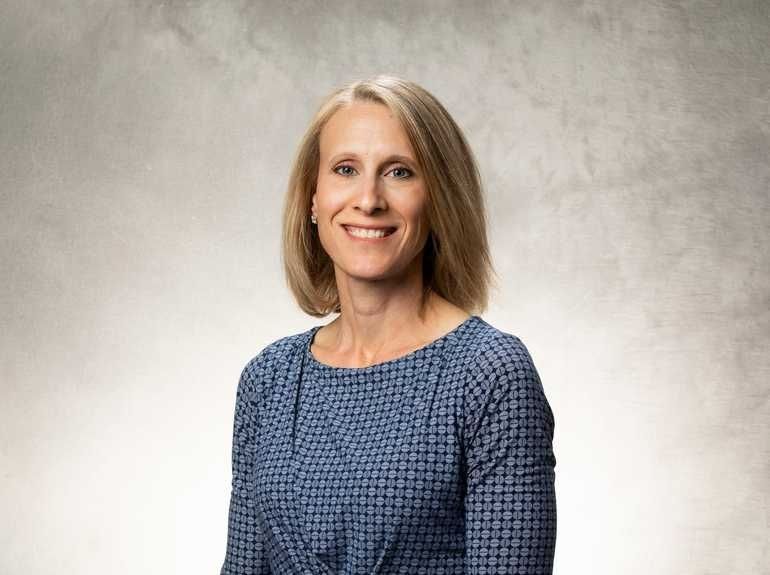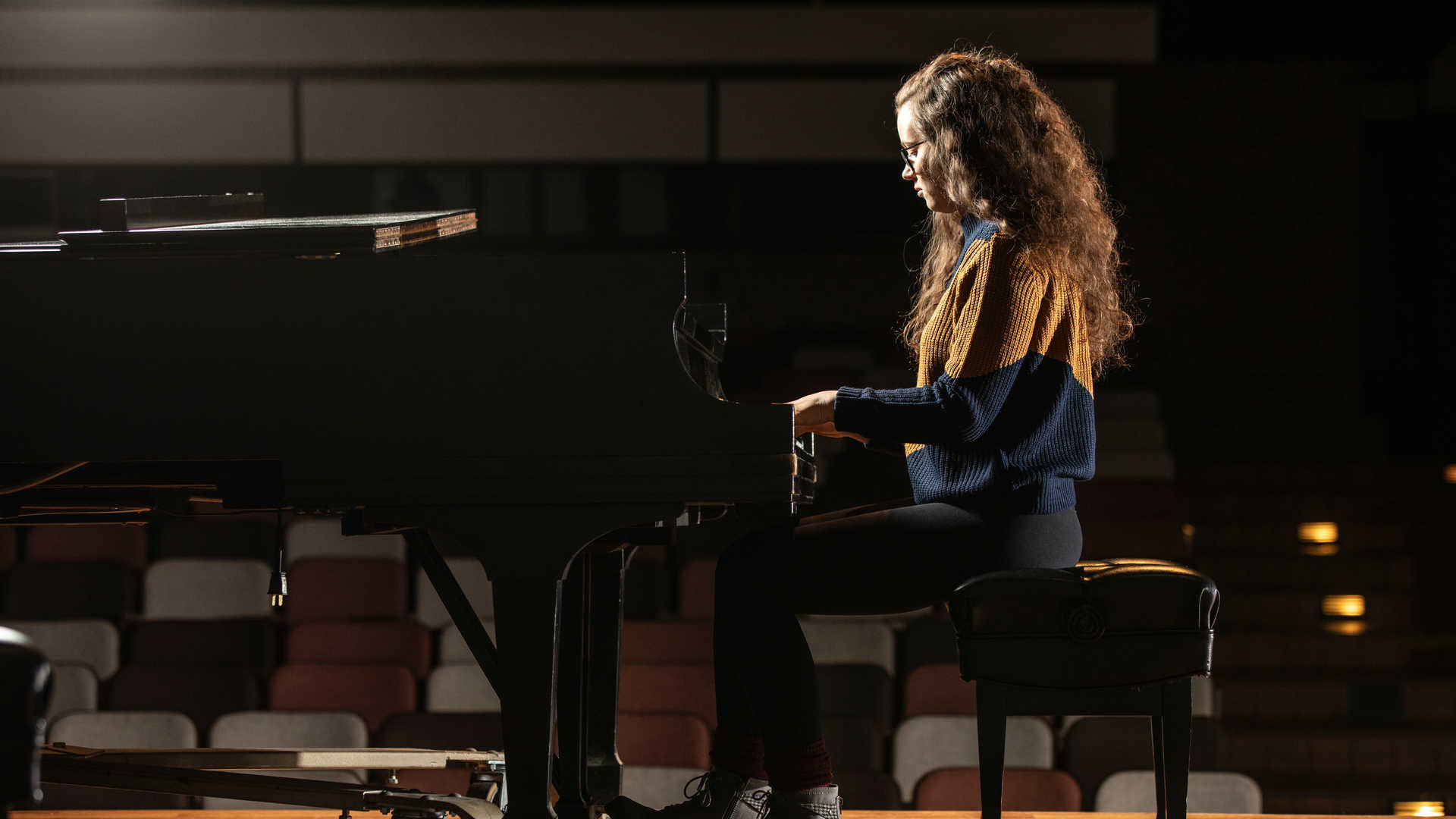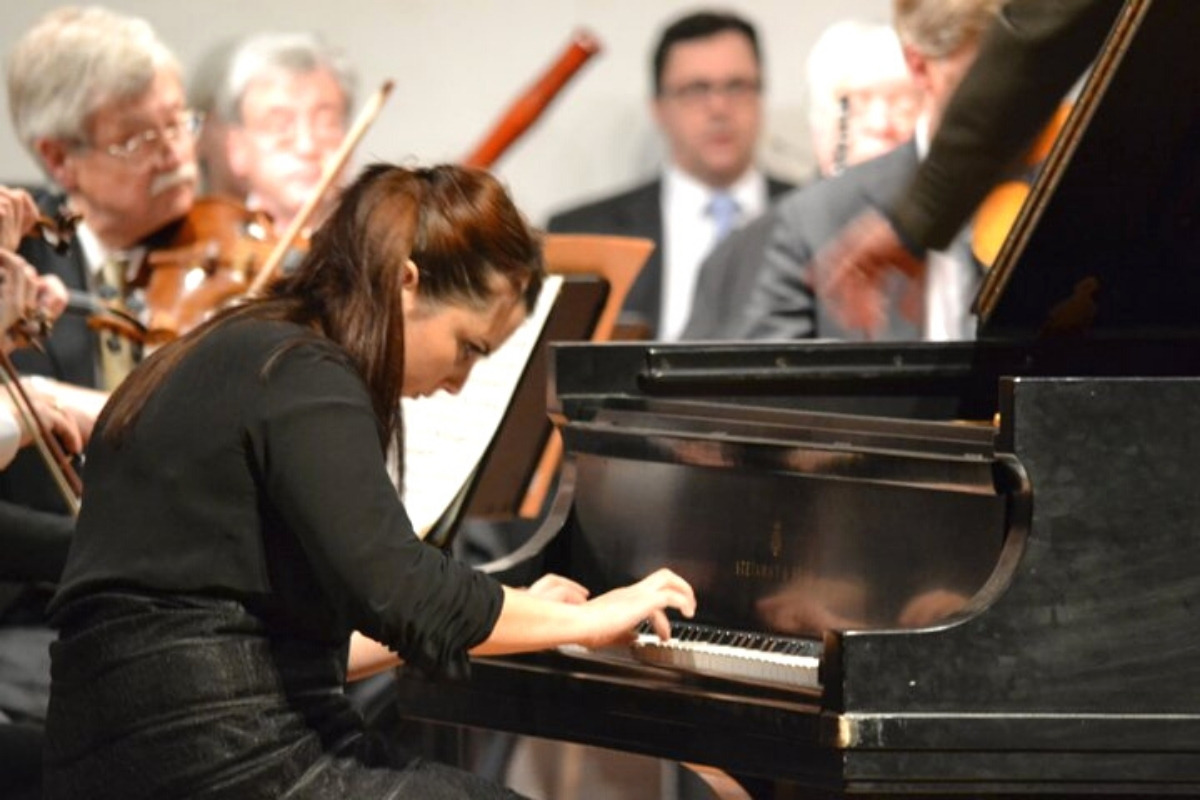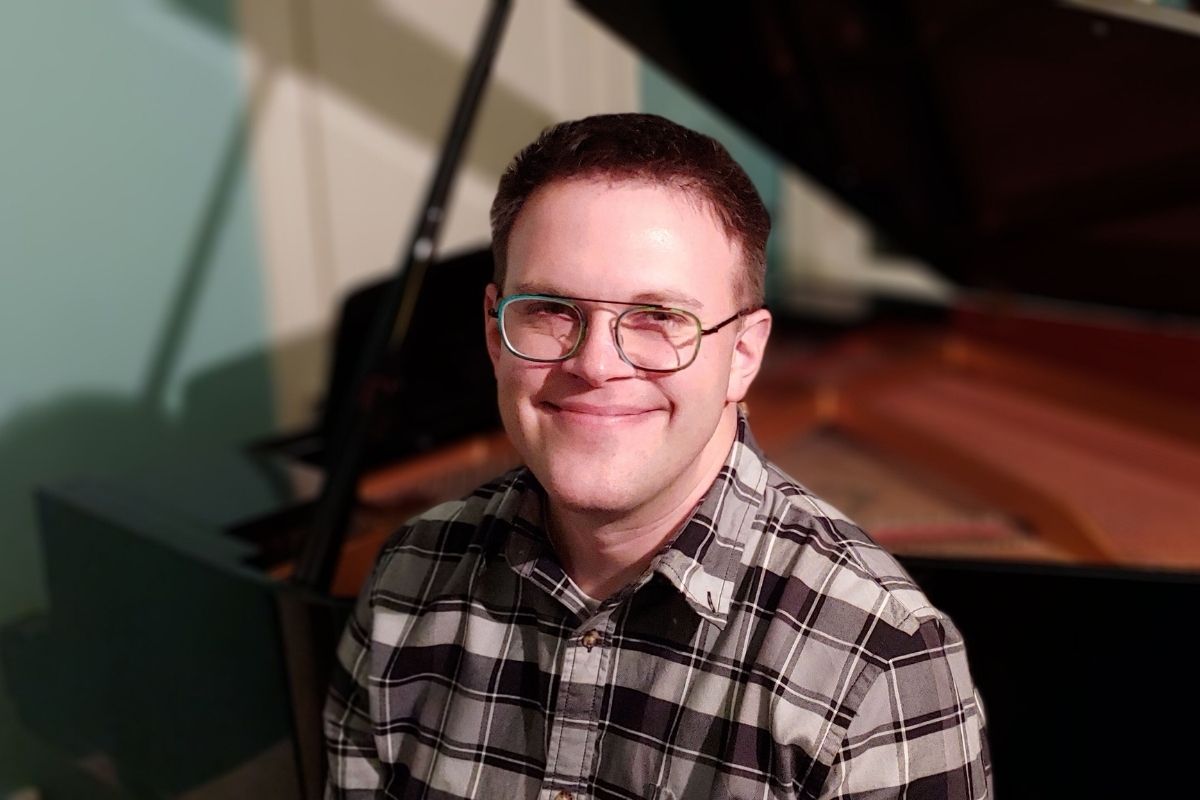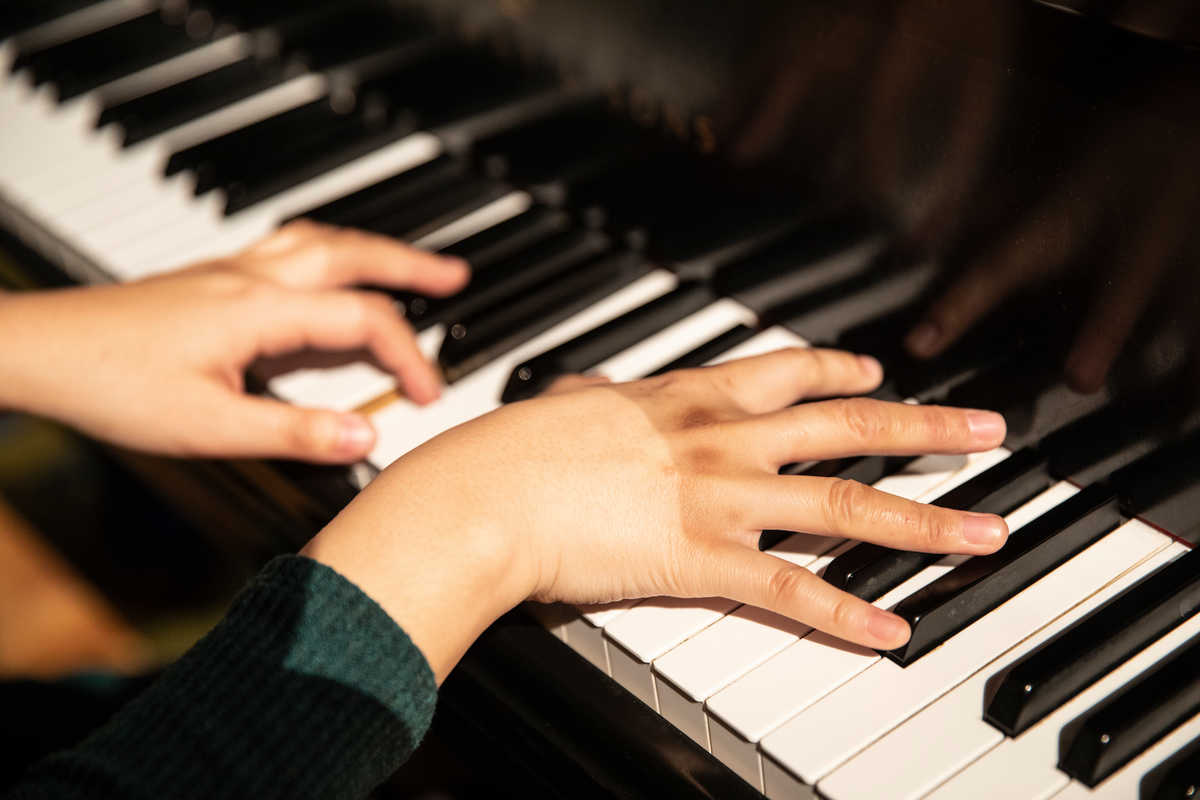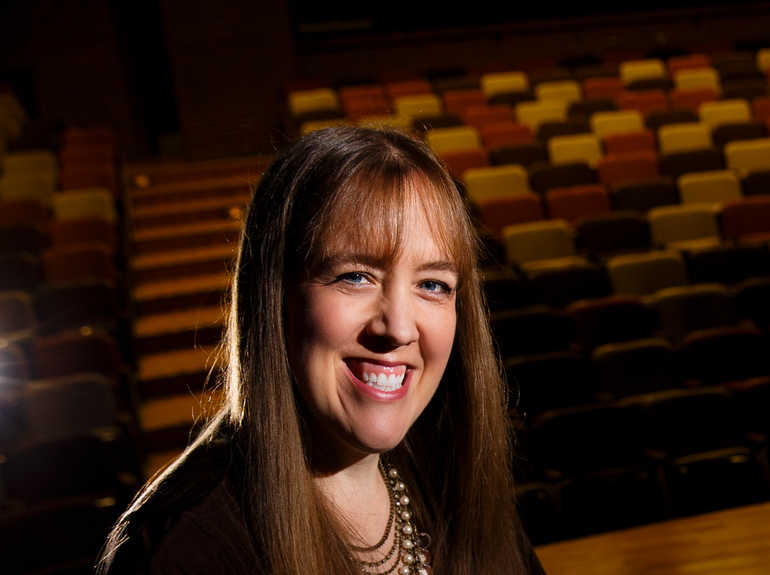
About the MA in Music Education Piano Pedagogy Concentration
Contact
Curriculum Details
Program Overview
The Master of Arts degree with a concentration in piano pedagogy features a broad range of theoretical courses balanced by requirements that apply to piano teachers' work with students of all ages and abilities. This concentration places emphasis on practical aspects of teaching elementary, intermediate and advanced students to develop their musicianship and technical skills.
The Master of Arts in Music Education curriculum requires 33 credit hours and consists of three elements:
- Core courses covering a variety of topics.
- A concentration to develop specific skills.
- A master’s thesis or final project to conduct applied research in music education.
Core Courses
Required areas of study include (17 credits)
- GMUS 600 Introduction to Scholarship and Research Methods in Music Education, 3 cr.
- GMUS 601 Teaching and Learning, 3 cr.
- GMUS 608 Foundations of Music Education, 3 cr.
- GMUS 611 Perspectives in Music Theory, 3 cr.
- GMUS 651 Dalcroze Musicianship, 3 cr.
- GMUS 750 Musicianship, 1 cr.
- GMUS 890 Master of Arts Final Project, 1 cr.
Piano Pedagogy Concentration Courses
Piano pedagogy concentration courses (11 credits)
- GMUS 571 Performance Studies – Piano (three semesters of 50-minute lessons), 3 cr.
- GMUS 771 Elementary Piano Materials and Teaching Techniques, 3 cr.
- GMUS 772 Intermediate Piano Materials and Teaching Techniques, 3 cr.
- GMUS 800 Supervised Teaching, 2 cr.
Piano Pedagogy Elective Courses
Piano pedagogy electives (5 credits)
- GMUS 536 Smithsonian Folkways Certification in World Music Pedagogy, 3 cr.
- GMUS 537 Latin American Music, 1 cr.
- GMUS 544-xx Topics in Music Education, credits vary (advisor approval required)
- GMUS 571 Advanced Performance Studies – Piano (additional semester), 1 cr.
- GMUS 615 Performance Practices, 3 cr.
- GMUS 619 Keyboard Literature, 3 cr.
- GMUS 773 Advanced Piano Pedagogy, 3 cr.
- GMUS 800 Supervised Teaching (additional semester), 1 cr.
- Other courses considered for elective credit (advisor approval required)
Other Degree Requirements
- Music Diagnostic Exams
- Oral Comprehensive Exam
- Piano Recital
Program Overview
The Master of Arts degree with a concentration in piano pedagogy features a broad range of theoretical courses balanced by requirements that apply to piano teachers' work with students of all ages and abilities. This concentration places emphasis on practical aspects of teaching elementary, intermediate and advanced students to develop their musicianship and technical skills.
The Master of Arts in Music Education curriculum requires 33 credit hours and consists of three elements:
- Core courses covering a variety of topics.
- A concentration to develop specific skills.
- A master’s thesis or final project to conduct applied research in music education.
Core Courses
Required areas of study include (17 credits)
- GMUS 600 Introduction to Scholarship and Research Methods in Music Education, 3 cr.
- GMUS 601 Teaching and Learning, 3 cr.
- GMUS 608 Foundations of Music Education, 3 cr.
- GMUS 611 Perspectives in Music Theory, 3 cr.
- GMUS 651 Dalcroze Musicianship, 3 cr.
- GMUS 750 Musicianship, 1 cr.
- GMUS 890 Master of Arts Final Project, 1 cr.
Piano Pedagogy Concentration Courses
Piano pedagogy concentration courses (11 credits)
- GMUS 571 Performance Studies – Piano (three semesters of 50-minute lessons), 3 cr.
- GMUS 771 Elementary Piano Materials and Teaching Techniques, 3 cr.
- GMUS 772 Intermediate Piano Materials and Teaching Techniques, 3 cr.
- GMUS 800 Supervised Teaching, 2 cr.
Piano Pedagogy Elective Courses
Piano pedagogy electives (5 credits)
- GMUS 536 Smithsonian Folkways Certification in World Music Pedagogy, 3 cr.
- GMUS 537 Latin American Music, 1 cr.
- GMUS 544-xx Topics in Music Education, credits vary (advisor approval required)
- GMUS 571 Advanced Performance Studies – Piano (additional semester), 1 cr.
- GMUS 615 Performance Practices, 3 cr.
- GMUS 619 Keyboard Literature, 3 cr.
- GMUS 773 Advanced Piano Pedagogy, 3 cr.
- GMUS 800 Supervised Teaching (additional semester), 1 cr.
- Other courses considered for elective credit (advisor approval required)
Other Degree Requirements
- Music Diagnostic Exams
- Oral Comprehensive Exam
- Piano Recital
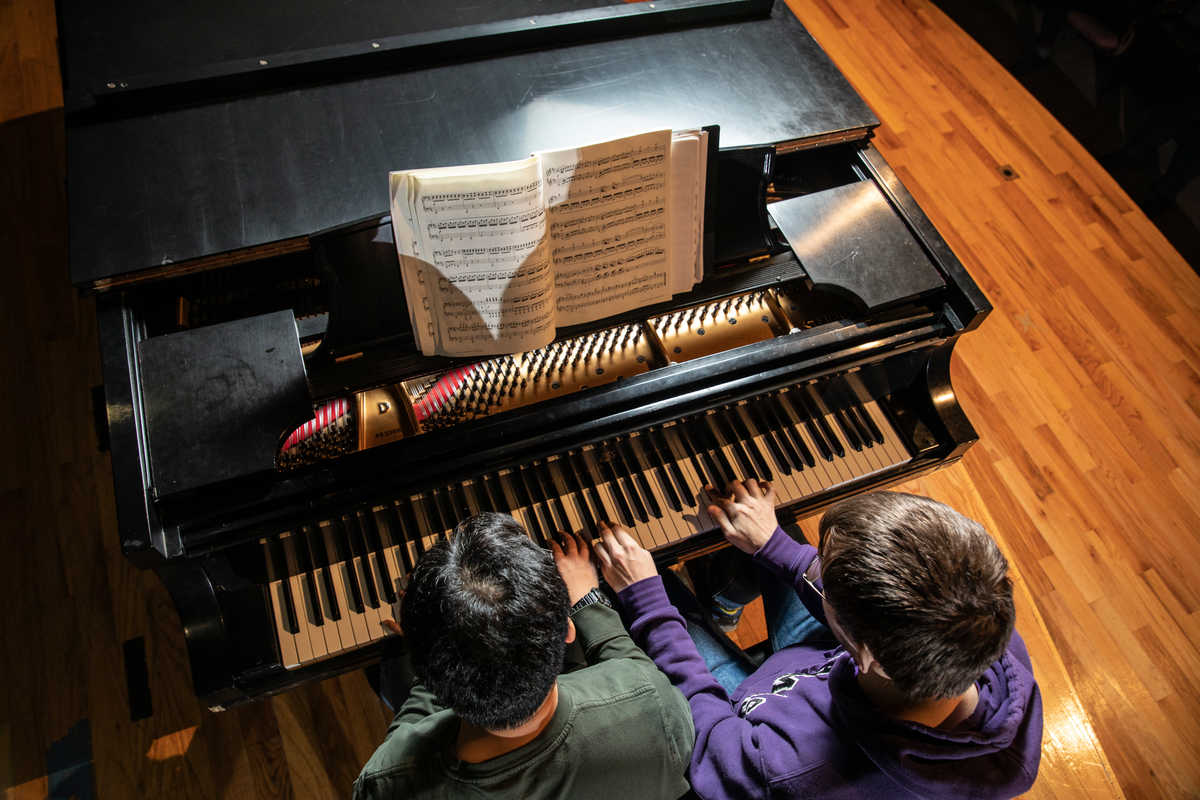
Commitment to Excellence
Music Teachers National Association Certification
In addition to providing outstanding teacher training, the piano pedagogy courses prepare students for the national certification application process. Required MAME coursework fulfills the Teacher Profile Projects for the MTNA certification process.
Our Alumni
Faculty

